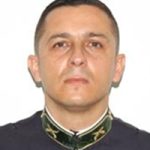Guardia Civil Workshop




The importance of the Joint Training at the International Border Management. Perspective of the G4 Initiative, made up of the French, Italian, Portuguese and Spanish Gendarmerie Forces
Closed Agency Workshop hosted by Guardia Civil
Joint training as an area to be considered in the future of international border management for the exchange of knowledge and the construction of common strategies. The G4 Initiative was launch by the Gendarmerie Forces of France, Italy, Portugal and Spain and seeks to strengthen operational cooperation and joint training in border and international security, focusing this model on the development of common capabilities, interoperability and the exchange of experiences to address transnational challenges. The workshop is proposed to focus on describing the aforementioned model in basic G-4 joint training, and its possible replication with international actors and agencies involved in border security. In addition to reflect on how to strengthen trust and mutual understanding between different agencies through joint training.
